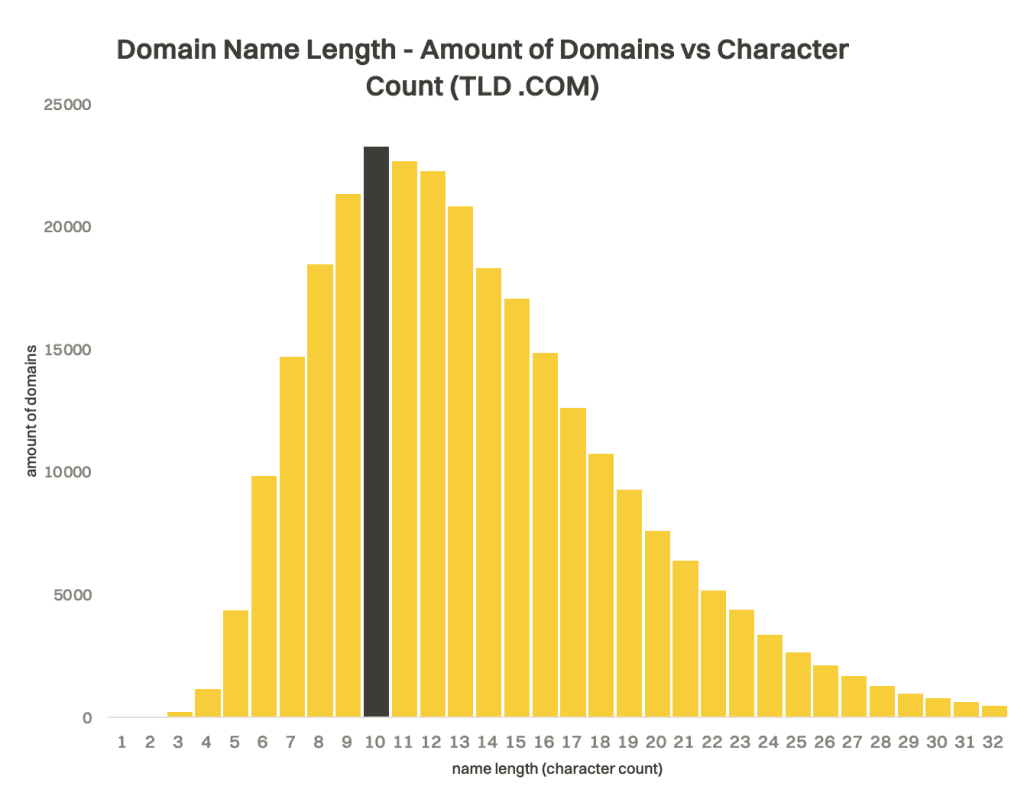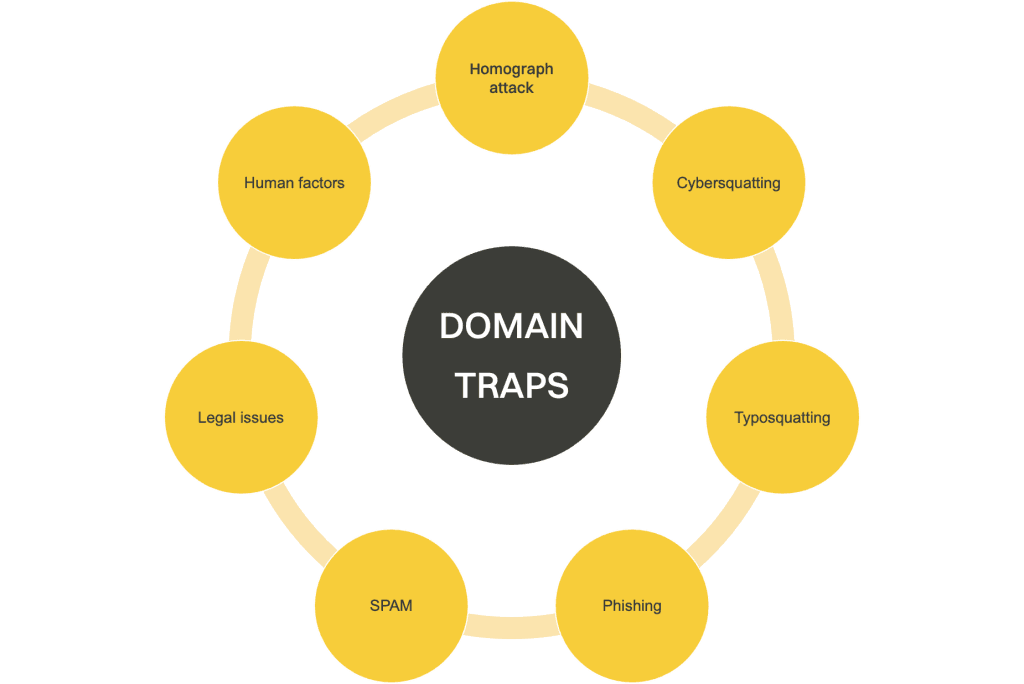A domain name is more than an address; it’s a marketing tool, a brand-building opportunity, and an SEO asset all in one. To help you make the best decision, let’s explore what makes a strong domain name, why it matters, and how you can select one that resonates with your audience.
What You’ll Learn from This Domain Choosing Guide
- How to choose a domain name that you’ll love for years.
- The optimal length and structure for a memorable domain.
- Tips to avoid potential legal issues.
- Understanding generic versus branded domains, and when to use each.
- What to do if your preferred domain name is already taken.
How Do You Choose the Perfect Domain? Let’s Start with Purpose!
Think of your domain name as a tool for achieving a specific goal in your marketing plan. Is it intended to:
- Build your brand?
- Improve search engine rankings?
- Drive traffic to a specific campaign?
- Protect your brand identity?
Each goal may guide you toward different types of domains. A branded domain will be memorable, while a descriptive or generic one may improve SEO by clearly conveying your business niche.
The Three Keys Success
The perfect domain name balances memorability, longevity, and sometimes even SEO benefits. While there are several steps to choosing the right domain, let’s first dive into what truly makes a domain name stand out.

1. Longevity
Ideally, you’ll pick a domain name that you’ll want to keep for the long haul. While changing your domain later is possible, it’s best to make a choice you can stick with, so think it through carefully.
Longevity matters because a stable domain name helps you build familiarity and trust with your audience. There’s also an SEO advantage: Google favors domains that age well and consistently deliver quality content. The longer your domain is active and supported with valuable content, the more credibility it earns, making it easier to rank.
Of course, you can change your domain if needed, and there are ways to protect any built-up authority. But for the best results, aim to choose a domain that will serve you well for years to come.
2. SEO Benefits
Along with building authority, the right domain can also boost your SEO efforts. A domain name that includes a relevant keyword can help improve your search rankings.
The key is balancing this with your brand name. In some cases, using a keyword within the domain can help, but you’ll want to weigh this against the benefits of sticking with your unique brand name. We’ll cover the details of keyword-rich domains versus brand names later, including which option may be best for you. I will elaborate on this a bit more in a moment.
In the meantime, it’s worth realizing that when a user is searching for a phrase on Google and sees the SAME keyword in a domain name, this link will be more attractive. It will suggest that the link guides the user to answers to their question. This is why generic domain names might get high click rates on Google.
3. Memorability
Your domain name is what your audience will remember and return to. A great domain is memorable and easy to recall, helping people find you again effortlessly. Think of it as the name tag your brand wears online—make it distinctive and straightforward.
Tailoring Your Domain for Your Audience
When choosing a domain, the top-level domain (TLD) you select, such as .com, .net, or .co, can signal your business’s location and trustworthiness to potential visitors. In the US, .com is universally understood and trusted, making it the primary choice for most America-based businesses. However, newer TLDs, such as .tech, .store, or .design, may better reflect your industry or the specific products you offer.
The number of .com domains has hit 160 million, according to a Verisign report. Finding a good, available domain name is difficult. Therefore, it’s good to know the other options.
Types of Domain Extensions: How Do You Choose the Perfect Domain from Such a Plethora of Options?
.com: The most popular and trusted option, ideal for businesses aiming for national or global reach.
.net or .co: Often used by tech start-ups or companies in crowded industries.
Industry-specific extensions: Examples include .law, .shop, .design. These can help convey your niche clearly but might be harder for audiences to remember than .com.
IT-specific extensions, like .online, .ai, .io: These provide a strong feeling of something modern.
Using New TLDs Creatively
Today’s digital landscape includes new TLDs like .shop, .online, and .blog, which can make for creative, industry-specific addresses. This approach, sometimes called a “domain hack,” combines words with the TLD to form a unique phrase, such as “print.me” or “tune.in.”
How to Choose the Perfect Domain Name Length
Keep it Short and Simple
A short domain name is easier to remember, type, and say aloud. In general, aim for between 6 and 14 characters. Avoid using multiple words, special characters, or numbers, which can be difficult to communicate clearly.
But this is advice you can find literally everywhere, and I wanted to give you something more specific. As we’re a big hosting provider, I want to give you more. I’ve prepared this chart based on a sample of 287,000 .com domains. This gives us a clue of what it exactly means to be “short” in terms of domain name length.

Histogram of .com domain name length. Source: cyberfolks.com
Note how the frequency peaks at 10 characters (excluding the “.com” part). So, it’s up to you which side of the Force you play, but keep in mind: If you want to keep it short, you’d better keep it up to 10–12 characters.
But sometimes when the words are difficult, it’s better to go with a slightly longer, yet easier name. Would you remember “abshtyfxzoo.com” or “animal-parties.com”? The latter, despite being longer, is much easier for our brains, isn’t it?
Should You Use Hyphens and Special Characters?
Special characters in domain names? Forget it! The only characters allowed are letters, digits, and hyphens. But there is a trick here, because you can also register domains using other alphabets, so-called IDN. Their notation starts with xn, and they allow the use of nonstandard Latin alphabet letters. We will return to this topic a bit later.
While hyphens might make reading a domain easier, they often cause confusion. A name like “toptierlawyers.com” is easier to type than “top-tier-lawyers.com.” But to read? Well… it depends.
When you use a hyphen, a domain name can be much easier to read but harder to type and dictate. So, my advice for you here: If you are serious, register both. You can use 301 redirections to maintain SEO power, and whatever your customer types, they will be sure to land on the right page.
Once again, add precision, I have done the research for you and checked the exact number of domains with a hyphen. It turns out that they’re not as uncommon as you might expect, as almost 12% of .com domains actually use this character.
11.8%
.com domains have a hyphen
Generic vs. Branded Domains: Which to Choose?
Generic Domains
Generic domains are based on common keywords like “bestlaptops.com.” They’re easy to understand and can benefit SEO by matching common search terms. However, they may be less memorable or prone to blending in with competitors.
The issue with this kind of domain is that sometimes in business, you need to pivot. Therefore, if you opt to sell not only the best laptops but also the best printers or the best cameras or the best phones, such a domain name will not be “wide enough.”
Another example would be switching to focus not only on the “best laptops” but also on the “cheapest laptops”—again, even though you are still in the laptop world, the domain is not good for you anymore.
And there is one more drawback, probably the biggest.
Generic domain names are hard to differentiate. goodlaptops.com, bestlaptops.com, goodnotebooks.com, bestnotebooks.com, nicelaptops.com, perfectlaptops.com—can you really tell them apart easily?
Branded Domains
A unique name (like Amazon or Etsy) stands out and builds a distinct brand identity. Branded names also offer flexibility if you later expand your product line or services.
Branded domains are much more universal and are probably the better option in terms of longevity. But from an SEO standpoint, they might be less attractive to users until you establish your brand. A domain like this doesn’t give any clues about “what’s inside the box.”
But in my opinion, it is worth the effort, because when you start your own real brand, it’s a good investment. No matter what course you take in the future, the domain will usually be able to follow, unlike a generic one.
Further Considerations
Will It Pass the “Phone Test”?
To ensure your domain is easy to remember and spell, try the “phone test”: Say the name out loud to someone and ask them to write it down. If they capture it accurately, you’re likely on the right track. Avoid domains with homophones (words that sound similar) or ambiguous spellings, as these may lead to miscommunication.
At the very beginning of your journey, this might not be crucial, but trust me, it is! Once your business grows, you might want to start, e.g., radio or video campaigns, and you’ll want word of mouth to help awareness spread.
Trademark and Legal Considerations
Before you finalize your domain, verify that it doesn’t infringe on any trademarks. Checking this helps prevent potential legal issues that could lead to costly rebranding. Use resources like:
- The US Patent and Trademark Office (USPTO) for national trademarks.
- The World Intellectual Property Organization (WIPO) for international trademarks.
Social Media Considerations
Double-check the availability of social media profiles. The good news here is that you can initially register social media accounts for free! There’s nothing worse than launching your website only to find out that the social media profile is already taken. So, including a social media check is a must nowadays!
Domain Protection
When you think about how to choose the perfect domain name for your business, security also plays a role. Here are a couple of threats waiting for people trying to “just register” the domain name.

How to choose the perfect domain name: Avoid these traps!
Watch out for domain-based scams. Domain security is crucial to protecting your brand and visitors. Here are the common scams to be aware of:
Cybersquatting: When others register similar domain names to profit from your brand. The pretenders try to provide similar services or offer similar products. Chances are, some percentage of users will not be aware of being on the wrong website.
Typosquatting: Domains registered with common typos to capture misdirected traffic (e.g., amazn.com). Why is this dangerous? Well, someone can counterfeit your website, and when a user enters the fake copy simply by mistyping your URL address, they cannot see the difference. There is a risk of them entering credentials that could result in them being taken over by an attacker.
Homograph attacks: Using visually similar letters from other alphabets to create lookalike domains. In my opinion this is a particularly nasty one. I didn’t hear about this until 2010, but this kind of attack was first described in a scientific paper back in 2002: “The Homograph Attack” by Evgeniy Gabrilovich and Alex Gontmakher. The researchers described a way to register a microsoft.com lookalike domain using characters from the Russian alphabet.
An interesting fact I learned during the WordCamp Conference in Warsaw, Poland, 2022: For visually impaired people, homograph attacks are not that dangerous, but they can be vulnerable to similar-sounding domain names. This is because they use voice readers to sound out the text on the screen.
How to Launch a Website Under Your Domain
Usually, when you want to launch your website, there are two options:
- Buy a hosting plan, install your website (WordPress is a popular content management system here), register a domain, and point it to your server.
- The easy way: Use a website builder! These builders are fantastic now, providing an easy website creation solution. You can get started as fast as 60 seconds flat! I’d really recommend you start with a website builder.
What If the Perfect Domain Name Is Already Taken?
How do you choose the perfect domain name when every option is impossible to register? It’s not the end of the world, worry not! Check if the domain has its history in WHOIS. If it’s new, the chances are that it will become available at the expiry date—in which case, you just need to wait.
Or you can try to contact the domain owner and try to cut a deal with them. For a certain sum of money, sometimes you might be able to get the domain. However, be prepared, as it might be costly, say 20 to 50 times the regular registration price. Each situation here is different, though.
If the above are not an option, you can search for an available domain name using other TLD’s. So, instead of .com, try to search in the .site or .biz name space.
Finally—especially if you’re just starting out—maybe you can just think of another domain name. When your brand is not well known yet, you can shape the brand to be whatever you’d like. So, just move forward with a different domain name!
Sometimes, you might think of a good domain name and add common words, still making it look a bit like a branded domain. If a preferred name is taken, consider alternatives:
- Translate keywords into other languages.
- “Perfumes.com” taken? Try adding adjectives or verbs (e.g., “ChooseYourPerfume.com” or “belovedscent.com”).
- Experiment with synonyms.
- Use common words from a different area. For example, a big European marketplace is “Allegro.pl,” a noun taken from the world of music (allegro being a fast tempo).
Your Perfect Domain—Summary
After choosing your domain, registering it is quick and straightforward with any reputable domain registrar. Remember that initial registration fees are often lower than renewal costs, so plan for long-term budgeting. Consider purchasing variations of your domain to protect your brand, such as different TLDs or commonly mistyped versions.
A well-chosen domain name helps build credibility, establish brand identity, and improve online discoverability. By following these tips and using domain search tools, you’re set to find a domain that fits your business, resonates with your audience, and positions you for online success.
So please, let me know in the comment section below what you think of these tips—were they helpful? Your comments are our fuel for upcoming blog posts like this!



0 comments